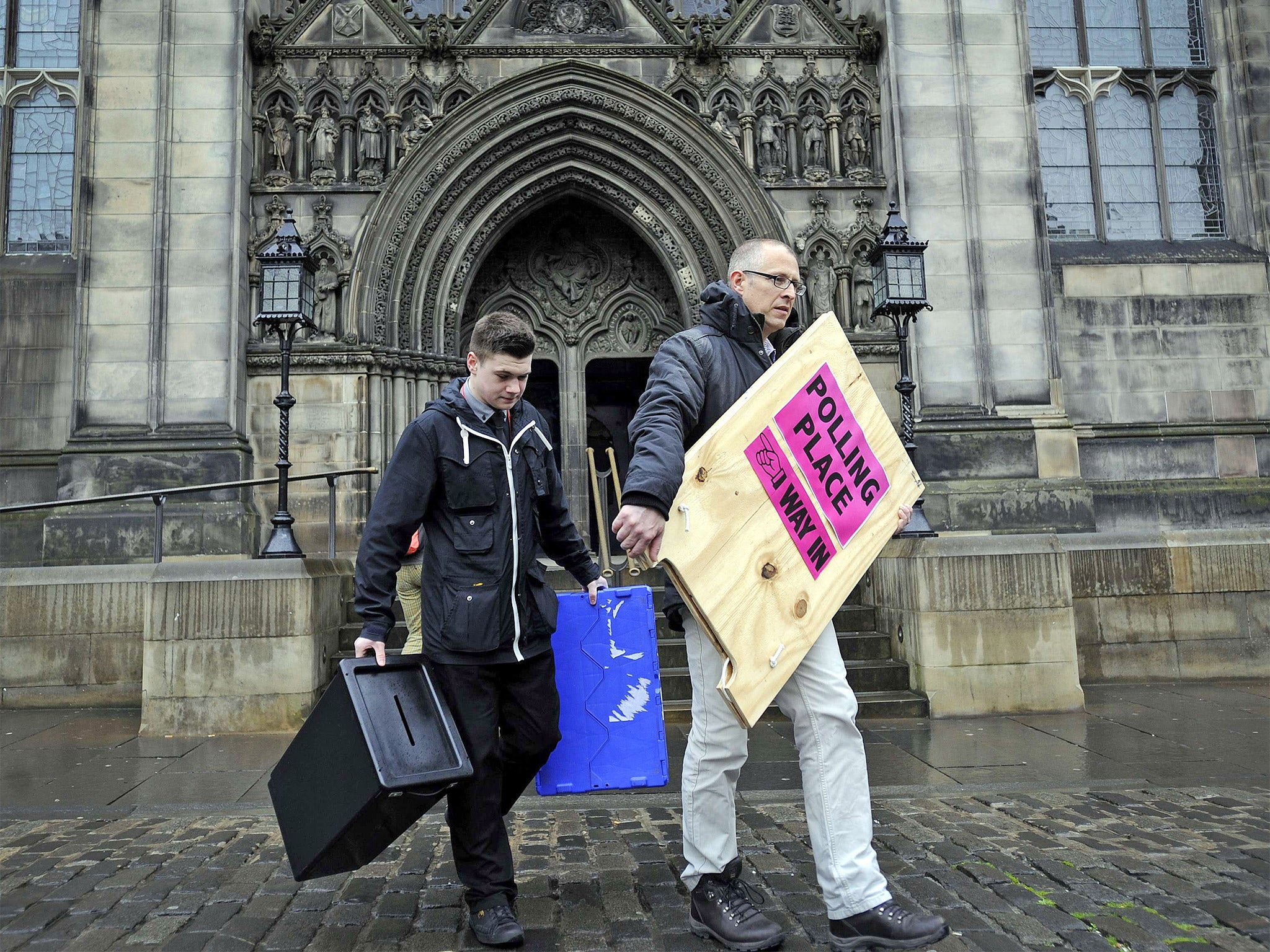General Election 2015: Time to ditch ‘tatty mythology’ of polling system, say retail experts
Retail experts warn that polling stations’ locations, the length of queues and the way candidates are listed on ballot slips can affect how people vote

The millions of voters who deliver their verdict at polling stations today will be following a ritual which has remained virtually unchanged for decades.
But retail experts condemned the experience as being “in the dark ages” and backed an overhaul of the process, warning that polling stations’ locations, the length of queues and the way candidates are listed on ballot slips can affect how people vote – or whether they even bother.
Karl McKeever, a retail consultant, called for an end to the use of dingy and outdated polling stations and said councils should emulate the big high street names which are constantly considering how to attract shoppers.
He said ballot boxes should be in locations which meet “modern-day needs” by being convenient, free from noise and with parking areas, clear signs and good natural light.
“It’s far more likely to get people to feel positively about the experience rather than as if they cast their vote almost reluctantly,” Mr McKeever said. He claimed it was time to consider replacing the “tatty piece of paper with ‘x marks the spot’” with touch-screen voting and reading polling cards with digital scanners rather than checking them by hand.
“There’s something cutely charming about the cross on the paper mythology, but people are getting more familiar with using this kind of technology in all parts of their lives. If we are trying to get more people to vote, then making this a bit more interesting and engaging is a good way to do that,” he said.
Mr McKeever, whose company Visual Thinking has advised Marks & Spencer, Sainsbury’s and John Lewis, said the layout of ballot slips tended to favour candidates whose names begin with letters early in the alphabet.
“Reorganising the sheet from being a document that runs from top to bottom to one that runs across could eliminate some of that,” he said.
Ben Gale, a queue specialist, warned that electors forced to wait in a lengthy line could end up casting a “panic vote” and not come back next time. He said returning officers had failed to learn the lesson of the chaotic scenes in 2010 when last-minute voters were turned away in Sheffield, Birmingham, Manchester and London.
“You could end up with a bottleneck of people arriving towards the tail-end of the voting process with increased frustration and the potential for people to claim they misvoted,” he said.
Mr Gale, the chief executive of Tensator Group, said two-thirds of shoppers are put off from returning to a store where they have a bad queuing experience. He suggested an electronic call-forward system to alert voters when polling booths were free and said they should be given information about candidates as they queued to help them to begin making up their minds.
“The lessons retailers have learned is exactly what the polling stations should learn: if you can make it a simplified process; make someone feel their wait is explained, that reduces anxiety,” he said. “At the end of the day we are customers.”
One factor, however, is beyond anyone’s control on election day – the weather.
The belief that sunny days tend to favour left-leaning voters has entered political mythology, but Mr McKeever argued that today’s forecast of dry and mild weather could actually encourage them to be less cautious.
“A bright, sunny day is far more likely to put people in a better psychological state,” he said.
“As a result, they may be more open-minded. It might make them more open to try new ideas or to be less fixed and less rigid in their thinking.”
Join our commenting forum
Join thought-provoking conversations, follow other Independent readers and see their replies
Comments